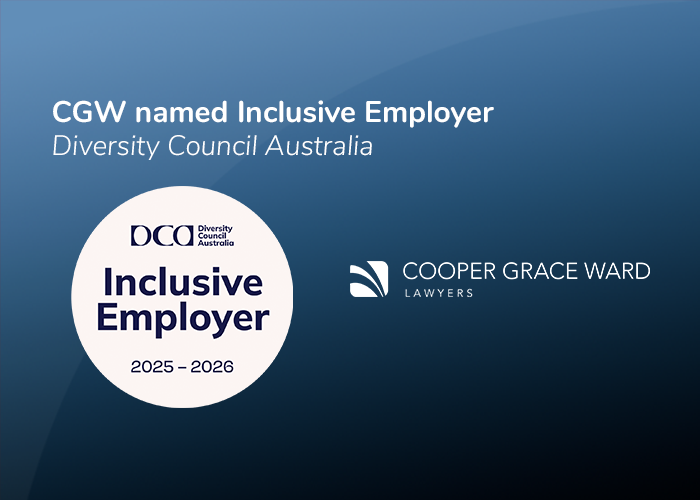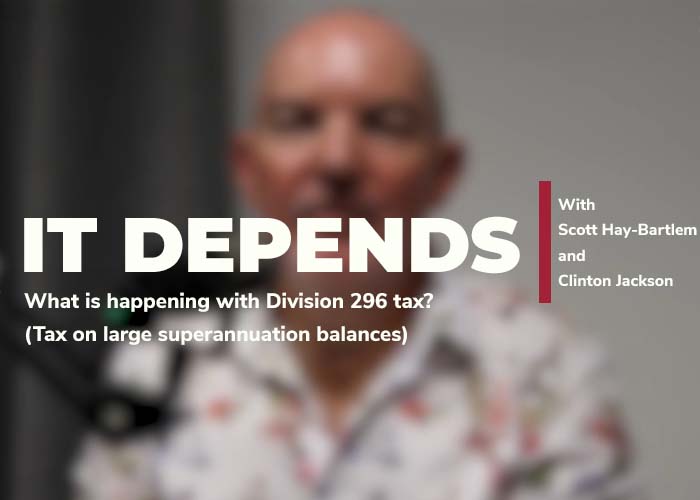This article provides a high-level overview of these amendments and insight as to how employers can ensure compliance.
Last year, employers saw substantial reform to the Australian employment law landscape. Notably, the Fair Work Legislation Amendment (Closing Loopholes) Bill 2023 was introduced by the Labor Government to close the ‘loopholes’ and gaps in employment law that have been historically used for unfair practices.
On 7 December 2022, the Bill was divided into two, with changes to be passed in two tranches. The first tranche, the Closing Loopholes Bill, received Royal Assent on 14 December 2022, with the second tranche, the Fair Work Legislation Amendment (Closing Loopholes No. 2) Bill 2023 receiving Royal Assent on 26 February 2024. The changes implemented by the Bills take effect in a staged approach between December 2023 and February 2025, with a full list of key commencement dates available here.
As both Bills brought significant changes to the Fair Work Act 2009 (Cth) (FW Act) and other related legislation, it is crucial for employers to understand these changes to ensure their workplaces are compliant. In this article, we provide a high-level look into the key changes implemented by the both the Closing Loopholes Bill and the Closing Loopholes No. 2 Bill. However, employers are encouraged to review the full list of changes as described on the Fair Work Commission’s website here.
Summary of the Closing Loopholes Bill
The key changes that the Closing Loopholes Bill made to the FW Act include:
- criminalising wage theft
- same job, same pay (regulating labour hire arrangements)
- enhancing workplace delegates’ rights
- increased discrimination protections, specifically for workers subject to domestic and family violence.
- changes to small business redundancy provisions
- making conciliation conferences compulsory
- entry rights of health and safety representatives
- health and safety reforms, including:
- amendments to the Asbestos Safety and Eradication Agency Act 2013
- amendments to the Safety Rehabilitation and Compensation Act 1988
- introduction of a Commonwealth industrial manslaughter offence.
An overview of some of these key changes is provided below.
Criminalisation of wage theft
The Closing Loopholes Bill introduces a criminal offence for employers who intentionally underpay their employees under either the FW Act or a Fair Work instrument (for example, a modern award or enterprise agreement). However, this does not apply to solely contractual entitlements.
The new offences carry significant penalties, which are additional to the rectification costs of the underpayments. These include:
- a maximum of 10 years’ imprisonment; and
- a maximum fine the greater of:
- three times the amount of the underpayment
- $1.565 million for individuals (being 5000 penalty units)
- $7.825 million for a company (being 25,000 penalty units).
The amendments also allow ‘save haven’ provisions for employers who self-report conduct amounting to intentional underpayments. The Fair Work Ombudsman (FWO) may enter into a cooperation agreement with the employer, and may agree not to refer the conduct to prosecution after assessing the conduct against a list of factors that include the employer’s cooperation with the FWO and previous compliance history. However, punitive or civil action may still be pursued.
For small businesses, a ‘safe haven’ can be enacted by way of the proposed Voluntary Small Business Wage Compliance Code. A small business may not be referred for criminal prosecution if evidence of compliance with the Code can be demonstrated. The Code is still currently in development.
The FWO has clarified that honest mistakes or miscalculations will not be caught by the wage theft provisions.
These changes come into effect either on 1 January 2025 or on the day after the Voluntary Small Business Wage Compliance Code is first declared by the Minister for Employment and Workplace Relations.
Discrimination protections
The amendments to the FW Act now include ‘subjection to family and domestic violence’ in the list of protected attributes within section 351.
It is now unlawful for employers to take adverse action against a current or potential employee because they have been, or are currently being, subject to domestic violence. In addition to this, no modern award or enterprise agreement may include any terms that may discriminate against a person on the basis of subjection to family and domestic violence.
These changes came into effect on 15 December 2023.
New offence: industrial manslaughter
The Closing Loopholes Bill introduces a new Federal offence of industrial manslaughter under the Work Health and Safety Act 2011 (Cth) (WHS Act). This approach now aligns the Commonwealth with other Australian states and territories that have progressively introduced this offence. Under these new laws, a workplace can be held criminally responsible for the death of a worker if the death was caused by intentional conduct that breaches the workplace’s heath and safety duty.
The new laws outline that a person conducting a business or undertaking (PCBU) or an officer of the PCBU will have committed an offence under the FW Act if:
- they have a health and safety duty
- they have intentionally engaged in conduct that breaches the health and safety duty and that conduct causes the death of the individual
- the PCBU or the officer of the PCBU was reckless or negligence as to whether the conduct would cause the death of an individual.
There is no time limitation period for proceedings relating to this offence to be brought, and alternative verdicts (such as guilt for a less serious offence) are available if guilt for industrial manslaughter is not determined.
The penalties for a breach of this offence include:
- 25 years’ imprisonment for an individual
- $18 million for a body corporate.
The industrial manslaughter offence is set to commence on 1 July 2024.
Similarly, there are significant increases to Category 1 offence penalties under the WHS Act. For a body corporate, this amount has increased from $3 million to $15 million, and from $600,000 to $3 million for a PCBU or an officer of a PCBU. For any other person, this has increased from $300,000 to $1.5 million. Additionally, the Bill introduces a 39.03% increase to all other penalties within the WHS Act.
Summary of the Closing Loopholes No 2. Bill
The key changes that the Closing Loopholes No. 2 Bill made to the FW Act include:
- the right to disconnect
- changes to underpayments, including the right of entry for suspected underpayments
- new definitions of ‘employee’ and ‘employer’
- new definition of ‘casual worker’
- regulations for ‘gig economy’ workers
- regulations for road transport workers
- dispute resolution mechanisms for unfair contracts
- intractable bargaining
- changes to enterprise bargaining provisions regarding multi-enterprise agreements and franchisees.
An overview of some of these key changes is provided below.
New definition of ‘employee’ and ‘employer’
As a result of the amendments, the FW Act will include new statutory definitions of ‘employee’ and ‘employer’. This involves an assessment of the ‘real substance, practical reality and true nature’ of the relationship between the parties.
This amendment reverts to the multi-factorial approach, and ultimately overturns the 2022 findings of the High Court in CFMMEU v Personnel Contracting Pty Ltd [2022] HCA 1 and ZG Operations Australia Pty Ltd v Jamsek [2022] HCA 2. The intention of the Fair Work Commission in returning to the common law test is that a fairer test is applied when determining a worker’s status.
Additionally, individuals who earn above the contractor high income threshold (which will be defined by the Fair Work Regulations 2009 (Cth) at a later date) can now ‘opt out’ of being defined as an employee. This can be exercised by either the worker or the employee by way of written notice. However, these ‘opt out’ notices may be revoked at any time.
These changes will come into effect from 26 August 2024.
New definition of ‘casual worker’
The Closing Loopholes No. 2 Bill introduces amendments to the definition of a casual employee in section 15A of the FW Act. Now, a ‘casual employee’ is one who meets both of the following requirements:
- the employee has no firm advance commitment to continuing and indefinite work
- the employee is entitled to a casual loading or rate of pay specified for casuals.
Determining the existence of a ‘firm advance commitment’ requires consideration of the ‘real substance, practical reality and true nature’ of the relationship between the employee and the employer. This includes examination of a number of key considerations, including whether:
- the employer can choose to offer the employee work
- the employee can choose to accept or reject this offer
- the employee has a regular pattern of work.
Additionally, the new amendments also change the casual conversion process. This is now called the ‘employee choice’ process. Now, after 6 months of work or 12 months in a small business, employees can choose to notify their employer in writing if they believe they no longer meet the definition of a casual employee and wish to convert to permanency. Employers have 21 days to respond to this request by either converting the employee to permanent work or by giving reasons that the notification has been rejected, and giving reasonable ground for the rejection.
This new pathway repeals the previous casual conversion process, meaning that, once these provisions come into effect, employers are no longer required to offer eligible employees the opportunity to convert after the twelve month period.
Finally, employers will need to provide all casual employees with a copy of the Casual Employment Information Statement as soon as practicable upon the employee commencing work. The statement will also need to be provided again after 6 and 12 months, and then again every 12 months (or after 12 months for small business employees).
These changes will come into effect from 26 August 2024.
The right to disconnect
The right to disconnect allows an employee to refuse to monitor, read or respond to contact or attempted contact from their employer outside of working hours. This does not prohibit all after-hours contact, but instead allows the employee to refuse contact such as phone calls and emails in these periods, so long as such refusal is reasonable.
The non-exhaustive factors that assist to determine the ‘reasonableness’ of an employee’s refusal includes:
- the reason for the contact, including if the matter is one of emergency
- the level of disruption that the contact causes the employee
- the nature of the employee’s role and associate responsibilities
- whether the employee is being compensated to perform work outside of their ordinary hours
- the personal circumstances of the employee, including caring responsibilities.
Employers should note that it is not a contravention of the FW Act to contact an employee outside of work hours. Instead, the Act prohibits the dismissal of an employee for reasonably refusing to respond to the contact.
Under the new amendments, disputes regarding the application of these provisions must be dealt with at a workplace level between the employer and the employee. If a dispute can’t be resolved, either party may apply to the Fair Work Commission.
These changes will come into effect from 26 August 2024 (excluding small business employers, which apply from 26 August 2025). These changes will also be included in Modern Awards at this time.
Key takeaways
The changes implemented by both the Closing Loopholes Bill and the Closing Loopholes (No 2) Bill are substantial and significant. To ensure workplaces meet these new requirements, employers should:
- familiarise themselves with the changes to assess how these will impact the workplace, procedures and people
- review policies and procedures to ensure compliance with the new laws
- consider the expectations for and reasonability of out-of-hours contact, and review employee remuneration to ensure it reflects the expectation that the employee remain available and perform work outside of working hours if required
- carefully consider labour hire, casual and independent contract arrangements and contracts to ensure that parties are acting consistently within their described relationships
- implement stringent and rigorous record-keeping processes to avoid the possibility of wage theft related claims
- diarise key commencement dates of the amendments.







